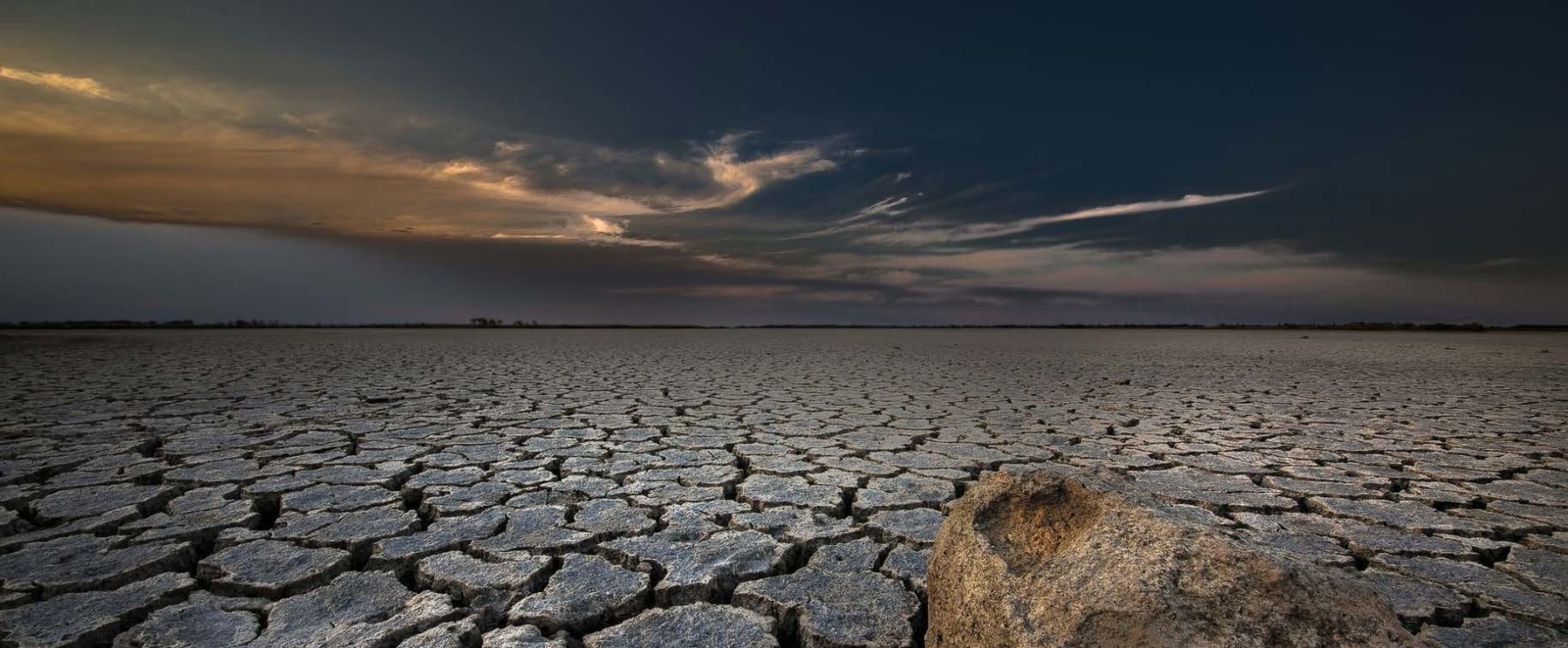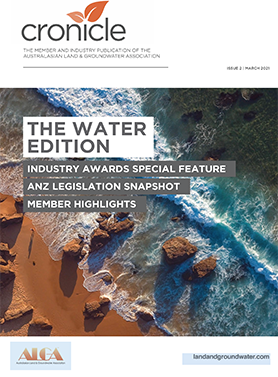
Cress in the news – Why local government should look to water stewardship
April 19, 2021

Cress Consulting recently had an article published in the Cronicle magazine, a member and industry publication of the Australian Land & Groundwater Association.
Local governments have a critical role to play in sustainable water management. Water is essential for the development and maintenance of healthy and successful economies and for human health. Ensuring the ongoing availability of water as an essential resource for our communities means that water must be used responsibly and sustainably.
Water issues facing local government include the quality and quantity of water supply, wastewater treatment and disposal systems, water management costs, the protection of surface water, groundwater and the longterm sustainability of water supply and management arrangements. Sustainable water management and water risk reduction could involve water efficiency, environmental
protection measures, improvements to water treatment, reuse and recycling initiatives, and other sustainable water management activities.
Australia is the driest continent on earth, enduring long periods of drought and devastating floods. The changing climate is leading to further drying, less reliable rainfall, more frequent drought as well as more intense and damaging rainfall events. So, how should local government manage the risk of reducing water security while at the same time making sure there is enough water for the community, agriculture, industry, business and the environment?
We might begin by questioning our understanding of current and future water risks. Is the supply adequate and at the right quality? Are there concerns about the impacts of drought or climate change on the security of local water supplies? How much does water cost to obtain, treat, supply and discharge? How much energy and chemical inputs are used? Is there a sustainable water management program in place? How is climate change likely to impact water availability, storage and supply? Which organisations use large volumes of water in the catchment or the region? What is the risk of pollution impacting the local environment? Could water use be reduced or used more efficiently? Are alternative water supplies identified? Is environmental compliance an issue in the catchment? How do you compare to other equivalent authorities? Do residential, community, commercial or industrial development plans require more water? What are the contingency plans if water supply is restricted or compromised in some way?
The international Alliance for Water Stewardship (AWS) has established a globally applicable framework that has been used in Australia and around the world to assess water risks. The AWS process works to identify shared water catchment challenges and shared values. It can help organisations and communities identify and meet meaningful targets in relation to water. The AWS Standard is ISO equivalent providing a systematic methodology to identify current and future risks, outline actions to improve water management, reduce risks, improve water security, reduce costs and increase efficiency.
A gaps analysis against step 1 of the AWS standards is typically a low-cost-high-value exercise which will help improve all local governments’ understanding of the water risks present in the local catchment and identify potential opportunities for improving the security and sustainability of water supply.
The analysis involves four key activities, outlined below:
- review of water related information such as water sources, quality, records of use, metering data, monitoring data, collection, treatment and discharge systems, regulatory requirements, environmental management systems and relevant best practices or benchmarks
- conversations with stakeholders to better understand the risks, location and community context
- preparation of a detailed description that includes water related data such as water sources, volumes consumed, costs, treatment processes and discharge criteria
- compiling information on the catchment including water resources, catchment characteristics and constraints, climate-related impacts, important or sensitive water environments and management frameworks
Putting the principles of good water stewardship into action can help ensure that water use for human and economic purposes is sustainable, does not deplete the water resource or cause harm to the natural environment.
Outcomes often include opportunities to improve water security, reduce costs, increase efficiency or improve water governance.
Good water stewards recognise the need for collective responses to the complex challenges facing the water resources we all rely on. A robust water stewardship framework identifies opportunities to improve water management for long term economic, environmental and social prosperity.
Experienced and credentialed water stewardship specialists can assist local government in navigating the challenges faced by the looming risk of reduced water security.
About the Author
Julia Seddon from Cress Consulting is a sustainability and corporate affairs professional with more than 20 years’ experience in the manufacturing, food and agriculture industries. Julia is a business leader focused on discovering opportunities for sustainable growth, resource efficiency and increased water security that also reduce business risk, improve operational performance and build reputation.
She has been involved in developing, trialling and implementing the AWS standard at several locations. She understands how water risk can impact business operations and supply chains and its social licence to operate. She is a credentialed water stewardship specialist and qualified to offer consulting, auditing and training in water stewardship and the recipient of the 2019 International Water Stewardship Award.
Click here to read digital flipbook.
Cress Consulting are sustainability, risk and water specialists, committed to finding the right solutions to help you secure a more sustainable, secure future.If you would like help to find the right solutions to a more sustainable, secure future, please contact us here.


